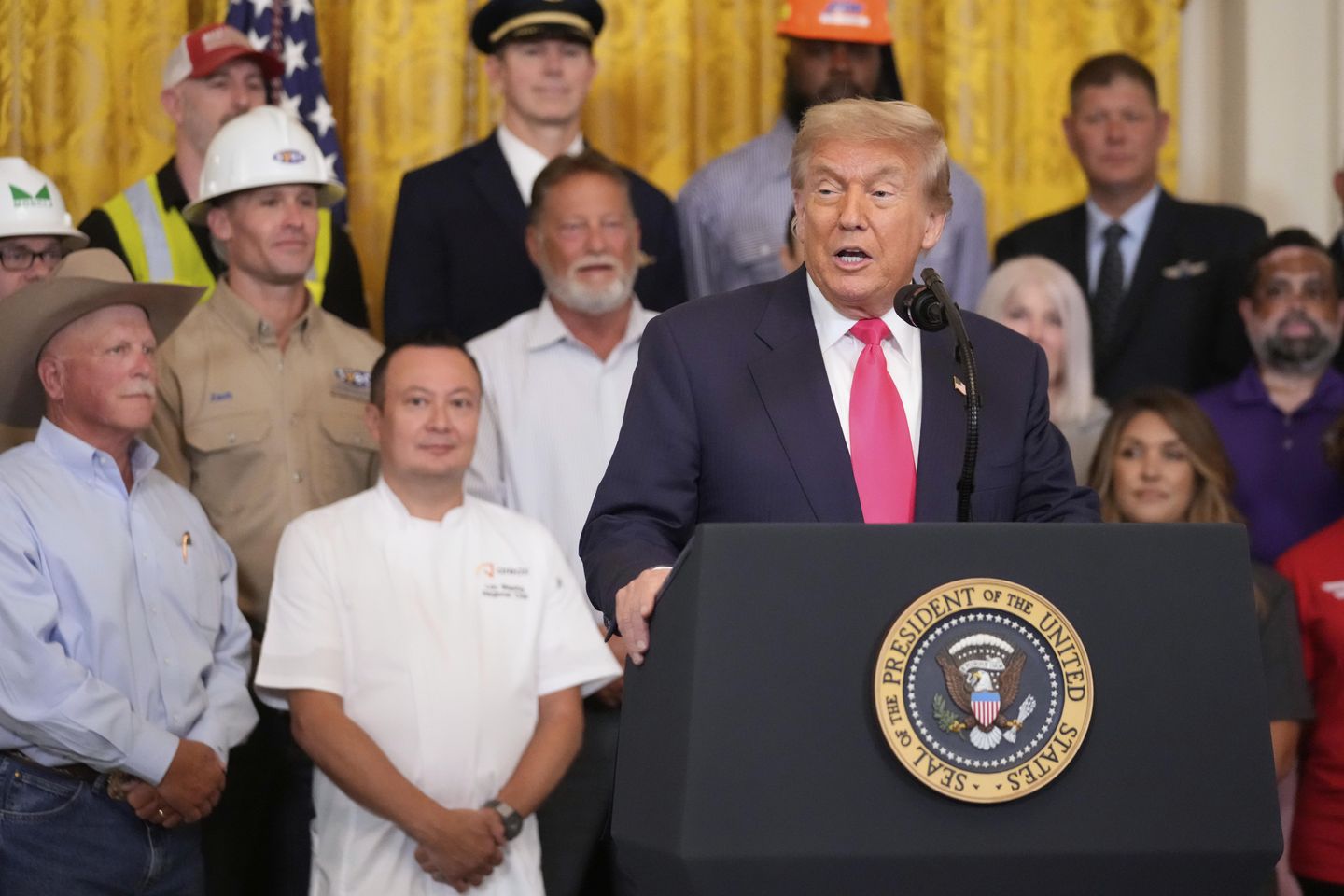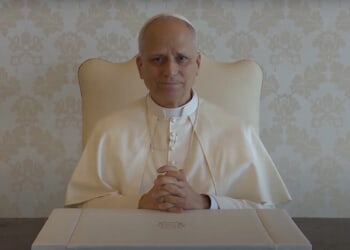
President Trump called on Congress on Thursday to pass his One Big Beautiful Bill Act, saying it would stave off the “largest tax hike in history” and deliver an economic boon for Americans in every walk of life.
Mr. Trump delivered his message to lawmakers from the East Room of the White House, where he was surrounded by everyday people, such as a flight attendant, a chef, a police officer and a construction worker whom he said would benefit from the legislation.
“We’re going to stop the largest tax hike,” the president said. “If the bill doesn’t pass, there’ll be a 68% tax increase. Think of that — 68% — which would be the largest in history, by about 40 points.”
If the bill does not pass, the 2017 Trump tax cuts would expire at the end of the year and trigger one of the largest tax increases in modern history.
The big bill now working its way through the Senate would also deliver a host of new tax breaks for workers and retirees.
“We’ll make the Trump tax cuts permanent, expand the child tax credit, and we will deliver no tax on tips, no tax on overtime and no tax on Social Security for our great seniors,” Mr. Trump said.
He called out DoorDash driver Malachi Krazewski, a mom from Ripon, Wisconsin, who was at the event. He said she uses her tip income to support her son.
“Think of that, no tax on tips, and it was a very big problem,” Mr. Trump said. “With no tax on tips and other cuts, this bill will save Malachi thousands of dollars per year.”
The president then said the no-tax-on-overtime-pay measure would benefit Luke Wilson, a 23-year-old electrician from Harmony, Pennsylvania, and Dee Sova, a truck driver from Springfield, Missouri.
“I just want to say, Luke and Dee spend countless hours working overtime to help make this country run,” he said. “And this bill, the typical overtime worker like them, will take home nearly $1,500 extra every single year.”
Senate Republicans are currently trying to muscle Mr. Trump’s bill through the upper chamber using the budget reconciliation process that prevents a filibuster and enables passage with a party-line vote.
The House has already passed its version of the bill.
In the Senate, however, several provisions, including key changes to Medicaid, were shot down by the chamber’s parliamentarian for violating the Byrd rule.
The Byrd Rule, named after the late Sen. Robert Byrd of West Virginia, says policy changes made in reconciliation must have more than a “merely incidental” impact on the federal budget — meaning the primary goal must be to shift federal spending or revenues, not make policy.
White House Press Secretary Karoline Leavitt said the president still expects the bill to be on his desk by July 4.
“Look, this is part of the process. This is part of the inner workings of the United States Senate, but the president is adamant about seeing this bill on his desk here at the White House by Independence Day,” she said.
• Lindsey McPherson contributed to this report.




![Man Arrested After Screaming at Senators During Big Beautiful Bill Debate [WATCH]](https://www.right2024.com/wp-content/uploads/2025/06/Man-Arrested-After-Screaming-at-Senators-During-Big-Beautiful-Bill-350x250.jpg)












